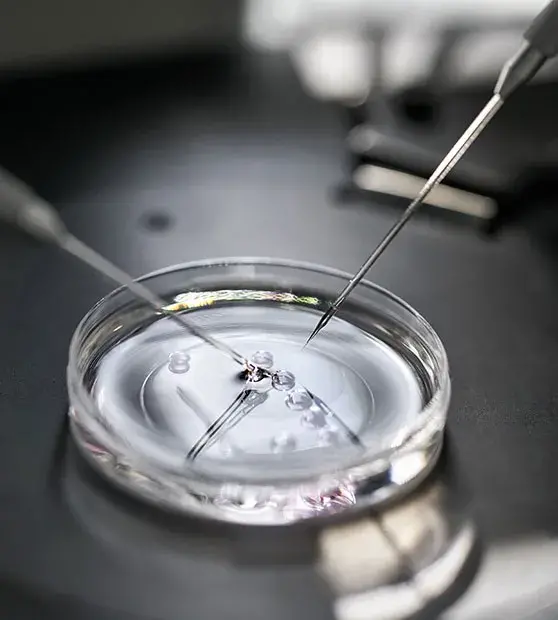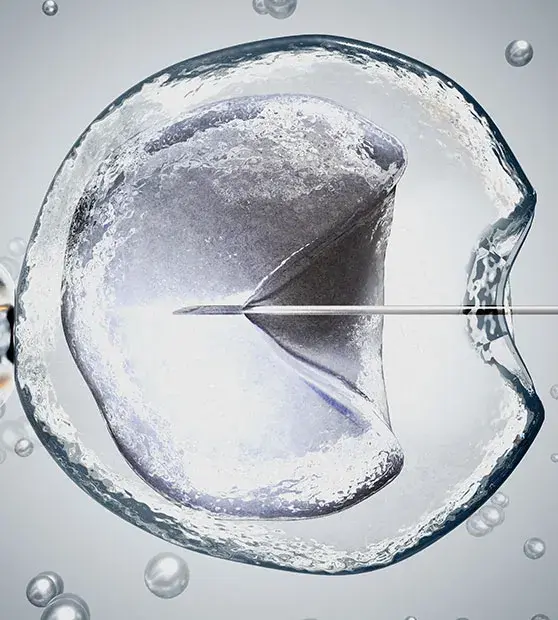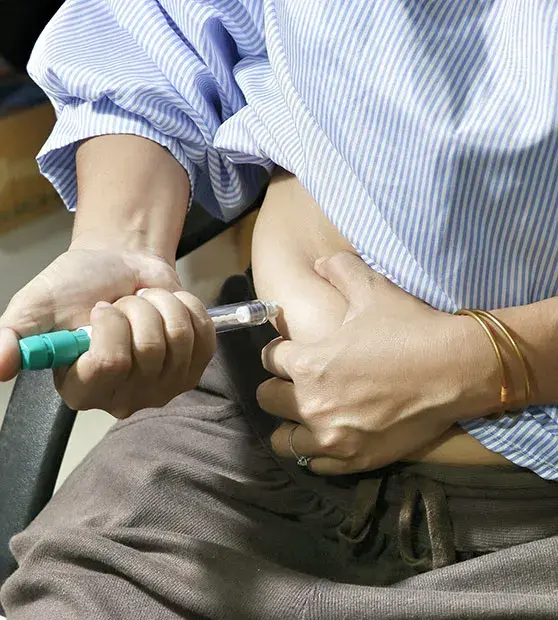In vitro maturation (IVM)
In vitro maturation (IVM) refers to the process when a woman’s eggs are collected and matured outside the body. In the process of IVM, embryologists take the immature eggs and ripen them in the laboratory. Later they are fertilized and placed into a woman’s uterus to achieve a successful pregnancy.
Since its inception in the 1990s, IVM has been a popular infertility treatment. Though IVM initially yielded limited success, however, improvements in IVM protocols, maturation procedures, and culture medium have resulted in satisfactory pregnancy rates in a carefully selected patient population.
Who should consider IVM?..
IVM should be considered for
- Females with a high risk of Ovarian Hyperstimulation Syndrome, including polycystic ovarian syndrome
- Females with oocyte maturation issues, if the couple experienced past IVF failures due to a low oocyte maturity percentage
- Females who have only a short time frame before undergoing cancer treatment (chemotherapy or radiation)
IVM is also considered a safer alternative than IVF in patients sensitive to gonadotropins.
IVM should be considered for
- Females with a high risk of Ovarian Hyperstimulation Syndrome, including polycystic ovarian syndrome
- Females with oocyte maturation issues, if the couple experienced past IVF failures due to a low oocyte maturity percentage
- Females who have only a short time frame before undergoing cancer treatment (chemotherapy or radiation)
IVM is also considered a safer alternative than IVF in patients sensitive to gonadotropins.
What are the steps of IVM?
Immature oocytes are harvested and cultivated for 24-48 hours in specific media enriched with hormones.
The next step is to evaluate the maturity and inject the mature ones with sperm from the husband (ICSI).
The subsequent steps are identical to those in IVF/ICSI, including oocyte culture, fertilization check, embryo culture and grading, and embryo transfer.


